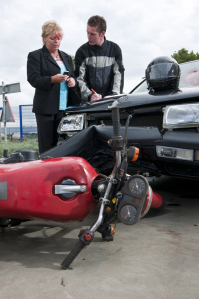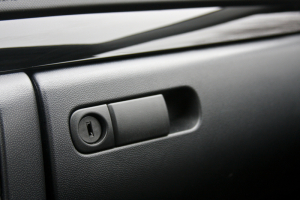Posted on 3/27/2013

It’s important that after you’ve been involved in an accident that the right steps are taken. Here are the correct steps to take: Determine if there are any injuries. Your first reaction might be to panic, but it’s important to try to stay calm. Examine yourselfcar accident information exchange for any possible injuries and determine if you or anyone else in the car needs medical attention. Call the police. Whether the accident is minor or serious, you’re going to need to file a car accident report with the police. Don’t leave the scene of the accident until this is done completely. Be sure to give the authorities very complete and very accurate information. Gather information. Now it’s time to get the names, phone numbers and addresses of everyone involved in the accident. You should also ask for their drivers license number and jot down a quick description of their car and license plate number. (Don’t just assume the license pl ... read more
Posted on 3/22/2013

The following are the documents you will need in the case of being pulled over or if involved in any accident. These should be in your car at all times: Proof of Insurance
This is the first thing you need when you’re in an accident or if stopped by the police. Make your life easier by always having this handy in your car and make sure it’s not expired! Having non up-to-date information will likely result in a ticket or higher fees on an existing ticket. Car Registration
The physical paper document affiliated with your car’s license plate is your proof that your car is registered to you (or your parents). Always keep this in the same safe place, like the glove compartment, near your proof of insurance. Car Title- Not Necessary
We actually recommend leaving this one at home. This is not something you want to carry around or even something you want to leave in your car. Not only is this a hard document to replace, but it’s al ... read more
Posted on 3/14/2013

As a young adult, it’s hard to think about saving and budgeting your money. In high school and possibly the early years of college, you’re most likely making minimum wage or not much more. You may be fortunate enough to get an allowance or have most of your expenses paid for, but it’s still important to learn the value of money. Here are some guidelines to help manage your money effectively. Use a savings account.
If you don’t have one of these, go ahead and open one with the help of a parent. Having your savings in the bank instead of in cash under your bed will make it less tempting to take from. Even adding as little as $10 per paycheck will really pay off when it’s time to start college. Budget your income.
Turn your spending into smart spending. Putting some money away into a savings account is a great way to begin. Next, it’s important to make a budget and stick to it. Plan your monthly spending and compare it to how much you actually ... read more
Posted on 3/11/2013

Let’s face it, the winter months aren’t great for students. The short days mean darkness as early as 5pm and our workload seems to greatly increase. Its not surprising that some of us will experience some seasonal depression or just simply slip into a funk. Here are some ways to keep your head above water and fight the winter blues: Get out in the sun as much as possible.
Much of seasonal depression is caused by the lack of daylight we are getting. So fight the cold weather and instinct to stay inside and walk the dog or take a drive. If you work full time or have a busy schedule, take a long drive during your lunch break and roll down the windows to get some fresh air. Position yourself next to a window.
If you have studying to do or have work that needs to be done, don’t bury yourself in the basement. Find a quiet spot near a window so that you can work with natural lighting. Be social.
Put some excitement into your ... read more
Posted on 3/6/2013

As a regular driver or commuter, it’s important to keep a roadside emergency kit in your vehicle. We realize it’s the age of cell phones,triangle reflector but if you happen to go any lengthy distances, it may take some time before a friend or family member can get to you. You want to be able to take a few steps to making a repair or protecting yourself if you’re ever in a situation where you get stuck. Having the items you need handy will make the difference between being able to help yourself or having to wait for a tow truck. Begin by finding a toolbox or other container to hold the items. You certainly don’t want items rolling freely in your trunk to get damaged or ruined. Next, gather the following: First Aid Kit. This is something you can put together yourself. Stock with bandages, bottle of water, adhesive tape, scissors and aspirin. Jumper Cables. Make sure your cables are at least 12 feet. Blanket. If you get ... read more